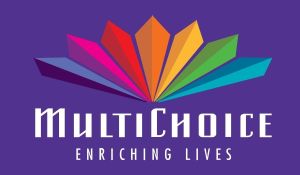Recent advancements within the solar energy sector are paving the way for enhanced efficiency, production capacity, and regulatory compliance. With government initiatives facilitating these developments, industries are witnessing significant progress aimed at fortifying India’s position as a leader in renewable energy.
The Ministry of New and Renewable Energy (MNRE) has been at the forefront of advocating for quality standards within the solar photovoltaic (PV) domain. Originally introduced on September 5, 2017, the “Solar Photovoltaics, Systems, Devices and Components Goods (Requirements for Compulsory Registration) Order” established guidelines aimed at ensuring the quality of solar products. Following this, the MNRE made necessary modifications, particularly concerning solar PV inverters with over 100 kW capacity. The self-certification provision for these pivotal components has recently been extended until December 31, 2024, providing manufacturers with additional time to comply with the standards.
According to the latest Gazette of India notification dated December 28, 2023, this extension is part of the government’s effort to address the limited availability of test facilities. Consequently, the implementation deadline for the Quality Control Order affecting these high-capacity solar devices has been moved to December 31, 2025. The requirement for manufacturers to possess valid International Electrotechnical Commission (IEC) certifications corresponding to Indian standards remains intact, ensuring compliance with IS 16221(Part 2):2015/IEC 62109-2:2011 and IS 16169:2014/IEC 62116:2008.
On the manufacturing front, Solex Energy, based in Gujarat, achieved notable success with the launch of its 800 MW solar module production line. This facility specializes in the production of n-type, rectangular cell Tapi-R series modules, boasting power ratings from 585 Wp to 625 Wp. The efficiency of the new production line surpasses existing operations by 30%, significantly enhancing output and reducing production timelines.
Integrative technologies such as artificial intelligence (AI) and automated optical inspection (AOI) play pivotal roles at Solex Energy’s state-of-the-art facility, elevati the quality control standards and minimizing human error. The incorporation of India's largest chamber laminators demonstrates the company's commitment to innovativeness, allowing for higher production efficiencies and compliance with strict quality benchmarks. Each Tapi-R module comprises 132 half-cut cells and is constructed using 182.2 x 210 mm wafers, achieving up to 625 Wp and a module efficiency of 23.14%.
Looking toward the future, Solex Energy’s Vision 2030 plans include expansions to their production capabilities, which aim to raise current manufacturing capacity from 1.5 GW to 15 GW. The company is also gearing up to introduce new cell manufacturing facilities, starting with 2 GW capacity and scalable up to 5 GW.
Meanwhile, Trinasolar has marked its presence by receiving the prestigious TÜV Rheinland’s AA rating for photovoltaic (PV) supply chain traceability. This accolade acknowledges Trinasolar's commitment to ensuring transparency and reliability from the raw material stage all the way to module production. Highlighting the importance of strong supply chain management, TÜV Rheinland’s audit covered all production stages, allowing the company to be the first to achieve this highest full-chain rating.
Xia Bo, Senior Vice President of TÜV Rheinland, commended Trinasolar’s achievement: “Strong supply chain traceability is a key indicator of transparency and reliability.” This certification showcases not only Trinasolar's operational prowess but also its drive to set benchmarks within the photovoltaics industry.
Du Qingguo, the Vice President of Trinasolar, emphasized the company’s dedication to fostering sustainable practices across its supply chain. He remarked, “Through close collaboration with Global Customer Service and supply chain partners, we have managed to establish comprehensive traceability mechanisms, setting benchmarks for supply chain traceability.”
The ramifications of these advancements and regulatory changes are poised to strengthen the renewable energy framework within India, enhancing the overall production efficiency and reliability of solar technologies. Further, as the emphasis on sustainability intensifies, organizations are encouraged to uphold high standards of ethics and environmental stewardship, thereby reinforcing their commitment to clean energy.
With the government’s proactive approach and the industry’s responsiveness to technological innovations, the solar energy sector is advancing toward achieving significant milestones. Continued collaboration between regulatory bodies and manufacturers will be pivotal as India marches toward its goal of becoming one of the leading producers of renewable energy globally.



